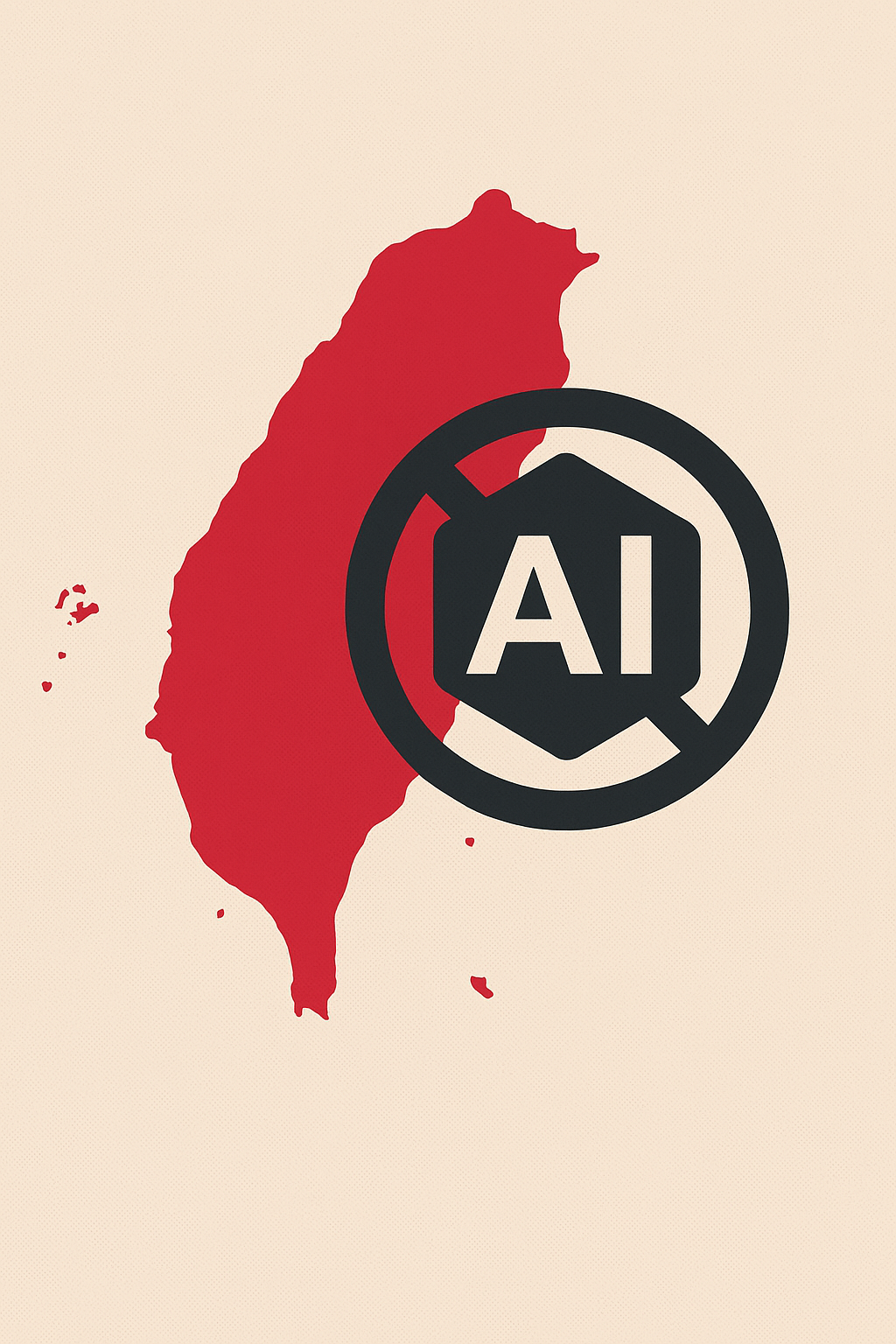Taiwan added major Chinese tech producers, including Huawei and Semiconductor Manufacturing International Corporation (SMIC), to its export control list. This move intensifies Taiwan’s cooperation with the United States to curb China’s ambitions in artificial intelligence (AI) and advanced semiconductors. It forces Taiwanese companies to seek permits before exporting to these firms, signaling heightened vigilance amid rising tech tensions.
What’s Happening & Why This Matters
Taiwan’s International Trade Administration recently updated its export control regulations, citing concerns about weapons proliferation and national security. Alongside Huawei and SMIC, the list includes hundreds of entities from China, Myanmar, Russia, Iran, and Pakistan.
Taiwan’s action aligns with growing U.S. efforts to restrict the flow of advanced technology to Chinese military programs. Washington has already limited sales of critical chip design software and manufacturing equipment to China. Taiwan’s action attempts to close potential supply chain loopholes.
Though largely symbolic, the step confirms Taiwan’s intention to regulate sensitive exports independently rather than simply following U.S. directives. Min-yen Chiang, a non-resident fellow at the Research Institute for Democracy, Society, and Emerging Technology, notes that Taiwan is the second country, after the United States, to restrict Huawei and SMIC publicly.
Taiwan’s largest chipmaker, TSMC, halted shipments to Huawei in 2020 due to pressure from the U.S. Since then, Huawei has increasingly relied on SMIC, which itself faces U.S. sanctions.
Concerns arose last year when TSMC-made chips were found in Huawei AI processors, despite official export bans. Reports suggest that chips intended for the Chinese firm Sophgo might have been rerouted to Huawei, triggering a U.S. Department of Commerce investigation. TSMC faces possible penalties exceeding $1 billion.
These developments prompt Taiwanese regulators and TSMC to review oversight and tighten control to prevent indirect supply chain breaches.
The ongoing chip war traces back to U.S. President Donald Trump’s administration, which restricted U.S. firms from cooperating with Huawei and limited chip sales. President Joe Biden expanded these restrictions to include advanced semiconductors, manufacturing equipment, and foreign-produced products using American technology.
China views companies like Huawei and SMIC as pillars of its semiconductor and AI ambitions under President Xi Jinping. Despite U.S. sanctions, Huawei launched the Mate 60 smartphone in 2023, featuring advanced chips from Semiconductor Manufacturing International Corporation (SMIC), which drew further scrutiny from the U.S.
Industry analyst Galen Zeng from IDC links Taiwan’s export controls to concerns over these chips and possible indirect supply routes. Zeng believes such measures push Taiwan toward greater supply chain transparency.
While restrictions pressure Huawei and SMIC, they may accelerate China’s drive toward semiconductor self-sufficiency. This benefits domestic Chinese suppliers of equipment, materials, and components.
Huawei founder Ren Zhengfei recently stated in an interview that U.S. technology bans do not severely impact Huawei or China. He acknowledged that Huawei’s chip technology lags behind U.S. standards by about one generation but claimed that advanced techniques, such as chip stacking, achieve comparable performance.
TF Summary: What’s Next
Taiwan’s addition of Huawei and SMIC to its export control list marks a more assertive stance in support of U.S. technology restrictions on China. This move seeks to prevent sensitive tech from fueling Chinese military advancements.
The evolving export controls may accelerate China’s semiconductor independence while also increasing global supply chain complexity. Monitoring these developments remains critical for tech, security, and geopolitical landscapes.
— Text-to-Speech (TTS) provided by gspeech


